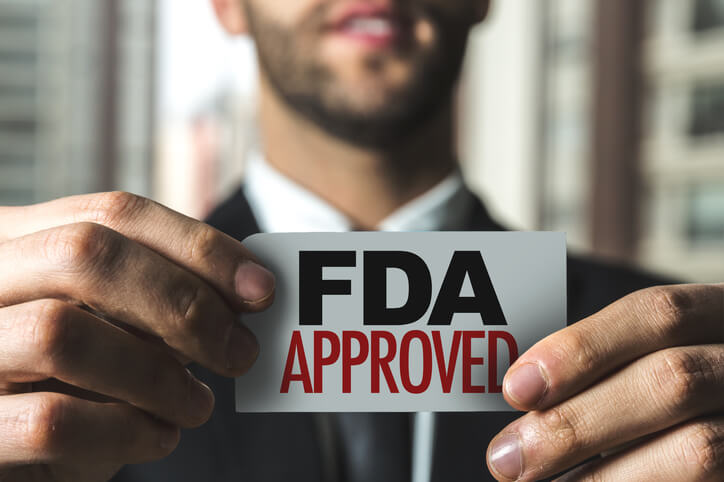The United States Food and Drug Administration (FDA) uses two different programs to review medical devices. The agency’s premarket approval program (PMA) is a longer, more stringent pathway requiring clinical safety and efficacy trials. The FDA’s 510(k) program fast-tracks clearance for any device that’s “substantially equivalent” to another one already legally marketed for the same use. And while this controversial program’s meant to provide faster medical treatment options, injured patients might disagree. Most importantly, any medical device cleared for market using the agency’s 510(k) program does not legally have FDA approval.
Why Device Manufacturers Choose 510(k) Over Traditional FDA Approval
The FDA must review any medical device before they can clear it for market. They may either file a 510(k) premarket clearance letter or PMA for FDA approval, depending on the device class involved. Most manufacturers prefer the cheaper 510(k) route (>$31 million vs. $94 million on average), which brings devices to market faster.
Manufacturers using the PMA FDA approval pathway must submit safety research, performance testing and standards requirements for review. The 510(k) program’s accelerated market clearance pathway requires minimal safety research and performance testing compared to standard FDA approval guidelines.
Related: Get Answers to Your Own Claim Questions
The Inherent Flaw in The FDA’s 510(k) Program
While well-intentioned, there’s a major flaw in the FDA’s current 510(k) clearance process. Essentially, the FDA cannot predict whether any currently legal marketed medical device may become dangerous after long-term use. If a device gets 510(k) approval based on another product that’s subsequently recalled for harming consumers, both are probably dangerous. However, that recall only affects the initial device, not the ones approved based on their similarity to the now-recalled one. This 510(k) pathway creates a “cascade effect” where potentially hundreds or thousands of consumers get defective medical devices permanently implanted.
Since the 510(k) program’s garnered so much controversy, the FDA requested a program review from the Institute of Medicine (IOM). After careful analysis, the IOM recommended discontinuing the 510(k) program and instead instituting a more rigorous FDA approval process. The agency’s press release stated: “FDA believes that the 510(k) process should not be eliminated but we are open to additional proposals and approaches for continued improvement of our device review programs.”
Faulty Medical Devices Given 510(k) Clearance Instead of FDA Approval
The FDA’s 510(k) program already cleared multiple recalled medical devices, including:
- Ethicon Physiomesh (though other hernia mesh patches also have faulty designs). This hernia mesh gained 510(k) clearance in 2010. Five years later, large clinical studies found high hernia recurrence and revision surgery rates in Physiomesh patients. Serious hernia mesh complications include infection, chronic pain, hernia recurrence, internal adhesion, perforation, intestinal blockage, revision surgery and even death. As a result, several hernia mesh lawsuits are now underway against device manufacturer Ethicon, a Johnson & Johnson subsidiary company.
- Transvaginal mesh (TVM). TVM is a net-like patch implanted in a woman’s pelvic region. Surgeons implant TVM patches in women diagnosed with pelvic organ prolapse (POP) and stress urinary incontinence (SUI). TVM can cause extreme complications like mesh erosion, organ perforation, serious infections, pain and scarring as well as urinary incontinence. To date, manufacturers paid more than one billion to settle transvaginal mesh lawsuits from injured women.
- Stryker Rejuvenate, ABG II and LFIT V40 hip implants. Stryker hip implants include a metal ball and socket (MOM). Clinical studies show MOM implant components experience friction during movement, releasing microscopic wear particles into the bloodstream and surrounding tissue. One 2012 study showed 9 in 10 MOM hip implants fail within 3 years, requiring patients to undergo revision surgery. In 2014, Stryker put aside $1.4 billion to settle lawsuit claims over defective, now-recalled MOM implants.
FDA Approval vs. 510(k) Clearance: Which Medical Devices Have More Recalls?
One study reviewed FDA medical device recall data from 2005-2011. During that seven-year period, only 10% of recalled medical devices gained FDA approval through the rigorous PMA process. Among 200 total device recalls reported during that timeframe, 180 were cleared using the accelerated 510(k) program. So why did Congress approve the 510(k) program in 1976 as an alternative to the traditional FDA approval process pathway? According to a JAMA Internal Medicine review, few medical devices were life-sustaining or permanently implanted in patients’ bodies back then. In other words, former FDA officials implemented the 510(k) program to avoid “over-regulation” and shorten marketing pathways. In recent years, less than 1% of medical devices sold to U.S. consumers actually gained FDA approval.
What You Can Do
If you or a loved one experienced complications from a 510(k)-cleared device, you may qualify for compensation. Get your free hernia claim review today to see if your case may qualify. An experienced lawyer will contact you to discuss your compensation options and how to help get the justice you deserve.
Related: Woman Needs Plastic Surgery for Hernia Repair Injuries
Lori Polemenakos is Director of Consumer Content and SEO strategist for LeadingResponse, a legal marketing company. An award-winning journalist, writer and editor based in Dallas, Texas, she's produced articles for major brands such as Match.com, Yahoo!, MSN, AOL, Xfinity, Mail.com, and edited several published books. Since 2016, she's published hundreds of articles about Social Security disability, workers' compensation, veterans' benefits, personal injury, mass tort, auto accident claims, bankruptcy, employment law and other related legal issues.

